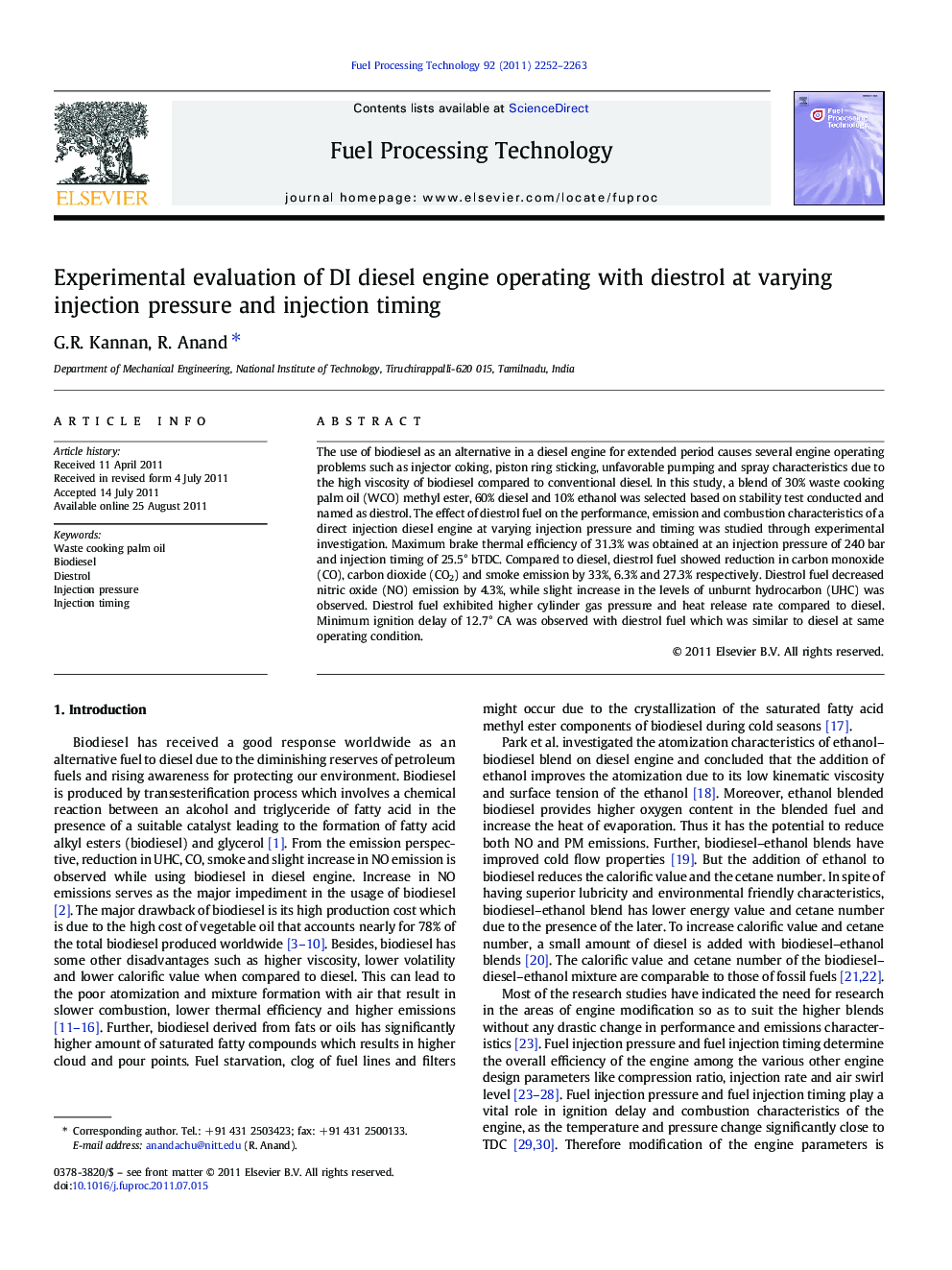| کد مقاله | کد نشریه | سال انتشار | مقاله انگلیسی | نسخه تمام متن |
|---|---|---|---|---|
| 210513 | 461715 | 2011 | 12 صفحه PDF | دانلود رایگان |

The use of biodiesel as an alternative in a diesel engine for extended period causes several engine operating problems such as injector coking, piston ring sticking, unfavorable pumping and spray characteristics due to the high viscosity of biodiesel compared to conventional diesel. In this study, a blend of 30% waste cooking palm oil (WCO) methyl ester, 60% diesel and 10% ethanol was selected based on stability test conducted and named as diestrol. The effect of diestrol fuel on the performance, emission and combustion characteristics of a direct injection diesel engine at varying injection pressure and timing was studied through experimental investigation. Maximum brake thermal efficiency of 31.3% was obtained at an injection pressure of 240 bar and injection timing of 25.5° bTDC. Compared to diesel, diestrol fuel showed reduction in carbon monoxide (CO), carbon dioxide (CO2) and smoke emission by 33%, 6.3% and 27.3% respectively. Diestrol fuel decreased nitric oxide (NO) emission by 4.3%, while slight increase in the levels of unburnt hydrocarbon (UHC) was observed. Diestrol fuel exhibited higher cylinder gas pressure and heat release rate compared to diesel. Minimum ignition delay of 12.7° CA was observed with diestrol fuel which was similar to diesel at same operating condition.
► Stablility study based on different proportions of diestrol fuels.
► Effect of injection pressure and timing on diesel engine studied with diestrol.
► The chosen fuel showed maximum brake thermal efficiency compared to diesel.
► Lower emission characteristics achieved using diestrol.
► Injection pressure of 240 bar and timing of 25.5° bTDC opt for diestrol.
Journal: Fuel Processing Technology - Volume 92, Issue 12, December 2011, Pages 2252–2263